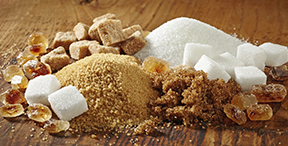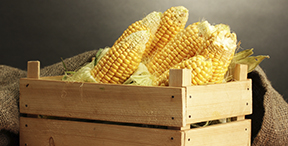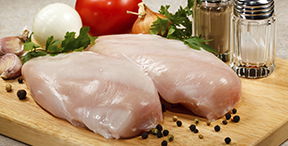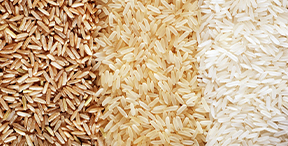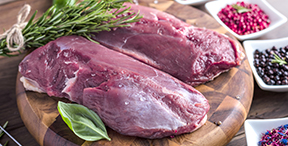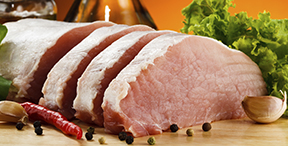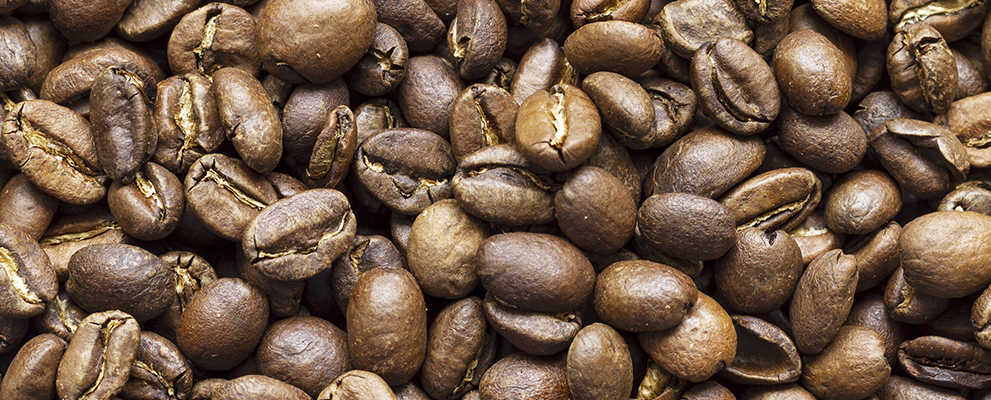
Brazilian Arabica Coffee Export
Arabica Coffee. Brazil is the largest producer, exporter and second largest consumer market for coffee. It has a plural and diversified coffee culture, with many aromas and flavors originating from Arabica and robust crops, cultivated from north to south of the country.
The total coffee exported from January to August 2020 was 26.4 million bags, being the second largest volume shipped for the period in the last five years, generating a total of US $ 3.4 billion in exports. Among the varieties shipped in this period, robusta coffee stands out for its 12.9% increase in exports, when compared to the volume of the variety exported in the same period last year. This variety of coffee corresponded to 11.6% of total exports (equivalent to 3 million bags shipped), while arabica coffee represented 78.3% of shipments (20.6 million bags) and soluble, 10 , 1% (2.7 million bags).
The top five destinations for Brazilian coffee were: United States, which imported 4.9 million bags of coffee (18.5% of the total shipped in the period); Germany, with 4.5 million bags imported (17%); Italy, with 2 million bags (7.6%); Belgium, with 2 million bags (7.3%); and Japan, with 1.3 million bags (5.1%). Following are: Turkey, with 863,900 bags (3.3%); Russian Federation, with 849,500 bags (3.2%); Mexico, with 649,300 bags (2.5%); Spain, with 634.7 thousand bags (2.4%); and Canada, with 562 thousand bags (2.1%).
Get in Touch
For more information on buying or selling brazilian arabica coffee or for asking for Buying Sourcing Services, Buyers Agent Services or for electing a Representative Buyer of foreign Trading Companies for Brazil.
Information About Brazilian Arabica Coffee
Arabica coffee accounted for 76.6% of the total exported volume in August, equivalent to 2.5 million bags. Conilon (robusta) coffee reached a 14.5% share, with 472.2 thousand bags shipped, while soluble coffee accounted for 8.9% of shipments, with 289.7 thousand bags. “The result of August demonstrates the entry of the new harvest of Arabica coffee in the market and the positive continuity in conilon shipments, which guaranteed Brazil a good performance at the beginning of the coffee year. The entire agribusiness coffee chain continues to perform high quality and efficient work, following all the prevention and safety measures determined by WHO and public municipal and state health entities. The harvest is practically finished, showing good results both in quantity and quality. Everything indicates that Brazilian coffee exports will have good results in the second half and always working with a focus on the three “S”, health, safety and sustainability ”, says Nelson Carvalhaes, president of Cecafé.
Arabica is the most common (and certainly the most commercialized) type of coffee in the world. That's because, in fact, it tastes sweeter and more delicate and the coffee itself tends to be less acidic. Arabica beans are grown in areas with high altitudes above sea level, especially those where rainfall is abundant. In fact, Brazil, known for its lush rainforest, is the world's largest exporter of Arabica grains. The plants themselves are quite delicate, requiring a good amount of pruning and constant attention to environmental factors. The Arabica coffee species is particularly prone to disease, so growing in large quantities is a challenge. This considerably increases the cost of the bean on the global market, but many coffee drinkers around the world are happy to pay the difference because of the softer, sweeter taste. One point to note about popular but sensitive beans is that their flavor has a reputation for being somewhat diminished when served cold or mixed with milk or cream. While this may be the case, it is fair to say that the difference is unlikely to be noticeable when you add some additional flavor to the drink.

Arabica Coffee
Arabica Coffee (Coffea Arabica) is the market leader, corresponding to more than 60% of world coffee production. This is due to its complexity of aromas and its more sweet flavor, having 50% less caffeine and higher sugar content. The so-called specialty coffees (gourmet coffees) are produced from Arabica beans.
Read more...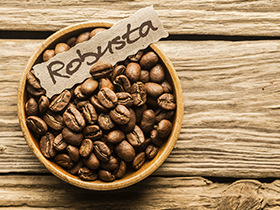
Robusta Coffee
Robusta coffee (Coffea Canephora), popular for the Conilon variety, tends to be more bitter and striking. It is a species more resistant to pests and diseases, and does not necessarily need to be cultivated in high altitude regions. These variants make the robusta have a lower production cost, consequently making the bag of coffee more affordable. This species is widely used in the production of soluble coffee, which partially explains its bitter taste.
Read more...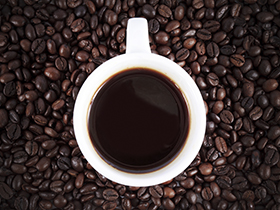
Soluble Coffee
Being a more practical way of consuming coffee, instant or instant coffee is among the favorites of consumers in gigantic markets such as China, Russia, the United Kingdom and Turkey. Its flavor is milder, as it has 20% less caffeine and has several types, such as spray dried, agglomerated and freeze dried / freeze dried. The production of instant coffee basically involves hydration (extraction process) and dehydration (or drying) of the beans. Until reaching this point, the process is the same used for the preparation of fresh coffee: selection of beans, roasting and grinding.
Read more...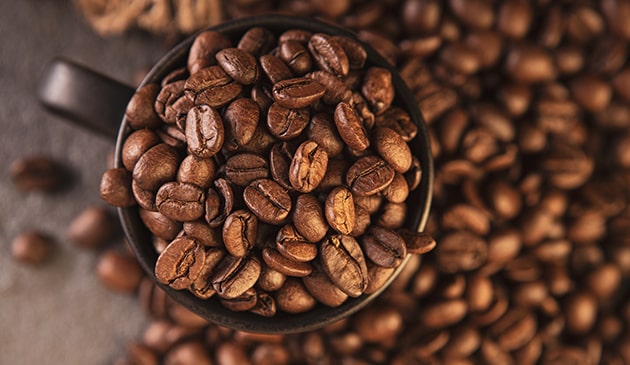
Arabica Coffee
| Caffeine: | 0.8-1.4% |
|---|---|
| Sugar Content: | 6-9% |
| Essential oil content: | 15-17% |
| Moisture: | 13.0% Max. |
| Mixture: | 1.0% Max. |
| Broken beans: | 5.0% Max. |
| Black breans: | 5.0% Max. |
| Screen 13: | 90% Min. |
News About Brazilian Arabica Coffee
Our team of buying and selling brazilian arabica coffee is ready to serve you!
For more information on buying or selling brazilian arabica coffee or for asking for Buying Sourcing Services, Buyers Agent Services or for electing a Representative Buyer of foreign Trading Companies for Brazil.








